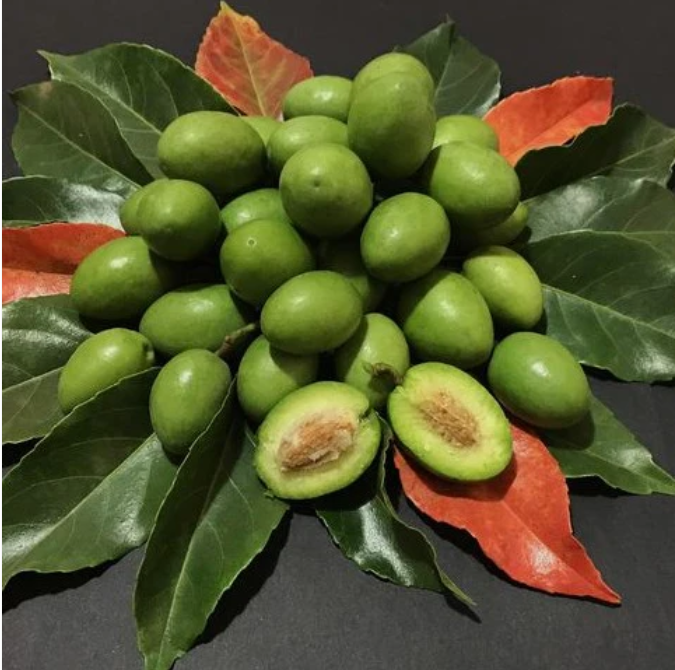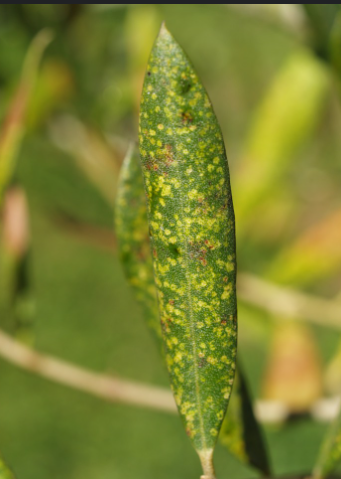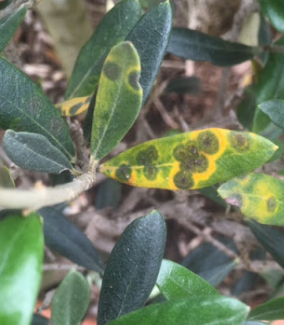Olive Plant
Olive (Olea europaea) is a tree that grows 20-30 ft tall, hardy in USDA Zones 8-11, prefers well-drained, loamy soil, full sun, low moisture, is edible, and has medicinal uses.

Habit
Tree
Height
4-10 m
Growth
Slow
Soil
Well-drained, sandy loam
Shade
Full Sun
Moisture
Low
Edible
Yes
Medicinal
Yes
Origin
Mediterranean, Asia
Climatic Condition
Mediterranean, Subtropical
Temperature (°)
15-30°C
Humidity (%)
60-70%
Potting media
Loamy, peat
Fertilizers
Balanced NPK (10-10-10)
Watering
Regular, moderate
Plant Weight
2-5 kg
Flowering Time
Spring, Fall
Soil Ph level
6.0 - 8.5
Water Ph level
6.5 - 7.5
Soil EC
1-2 dS/m
Yield Per Plant
Olives (fruit)
NPK ratio
10:10:10
life Span
Perennial
Health Benefits
Antioxidants, heart health, anti-inflammatory
Suggested Grow Media or Potting Mix ?
50% sandy soil, 30% compost, 20% perlite
Suggested Fertigation/Fertilizers
Fertilize every 6 weeks with a balanced, slow-release fertilizer.
Common Diseases and Remedies
Olive Knot, Anthracnose, Verticillium Wilt, Peacock Spot.
Galls on branches and twigs Dark sunken spots on fruit and leaves, Yellowing leaves, wilting, Circular spots with purple margins on leaves.
Prune infected branches, improve air circulation Remove infected plant parts, copper fungicide Improve soil drainage, remove infected trees Improve air circulation, neem oil
Copper-based fungicides, Chlorothalonil, None effective, focus on prevention, Fungicides with myclobutanil or copper.
HEALTH BENEFITS
- Rich in heart-healthy monounsaturated fats.
- Contains antioxidants that reduce inflammation.
- Supports brain health and may help prevent neurodegenerative diseases.
- Helps regulate blood sugar and improve digestion.

